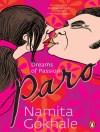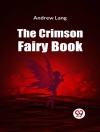In ‘Thomas Hardy: The Complete Novels, ‘ part of the esteemed ‘Giants of Literature’ series, readers are invited to explore the expansive narratives of one of England’s most significant literary figures. This volume encompasses all of Hardy’s major works, showcasing his masterful command of language and deep psychological insight. With a distinctive style that integrates naturalism and an acute awareness of societal constraints, Hardy’s novels delve into themes of fate, love, and the inexorable passage of time. The collection not only highlights Hardy’s vivid characterizations but also reflects the sociopolitical landscape of 19th-century England, characterized by rapid industrialization and social upheaval. Thomas Hardy (1840-1928) emerged from a rural background in Dorset, where the intricate relationship between humanity and nature shaped much of his writing. His early career as an architect and his subsequent transition into literature provided him with diverse experiences that informed his storytelling. Hardy’s profound connection to the English countryside, alongside his critical views on Victorian morality, influenced his thematic explorations and character development, positioning him as a precursor to modernism. This comprehensive collection is a valuable resource for both seasoned scholars and new readers. It offers a substantive insight into Hardy’s literary genius, making it an essential addition to the library of anyone interested in classic literature or the complexities of the human condition. Embark on a journey through the poignant landscapes of Hardy’s mind and embrace the enduring relevance of his narratives.
Circa l’autore
Thomas Hardy (1840–1928) stands as one of the premier figures in English literature, noted particularly for his contributions to the naturalist movement. Born in Dorchester, Dorset, Hardy began his career as an architect before turning to writing. His literary work is characterized by its profound depiction of the human condition, often exploring tragic characters and the social constraints of Victorian society. Hardy’s novels, rich in detail and set against the pastoral backdrop of the semi-fictional region of Wessex, closely examine the complexities of love, class, and the inevitability of fate. Among his most acclaimed novels are ‘Far from the Madding Crowd, ‘ ‘The Mayor of Casterbridge, ‘ ‘Tess of the d’Urbervilles, ‘ and ‘Jude the Obscure.’ His writing, imbued with a deep sense of pessimism and fatalism, often led to public outcry, particularly with the grim outlook and frank treatment of sexuality in his later novels, which pushed the boundaries of the acceptable norms of his time. Nevertheless, Hardy’s work endures for its remarkable craftsmanship, psychological insight, and his keen observation of social dynamics. ‘Thomas Hardy: The Complete Novels’ (The Giants of Literature – Book 22) presents a comprehensive collection of his novels, offering a panoramic view of his literary genius and enduring legacy. Hardy’s influence extends well beyond his own era, with his novels continuing to resonate with readers and scholars alike.












